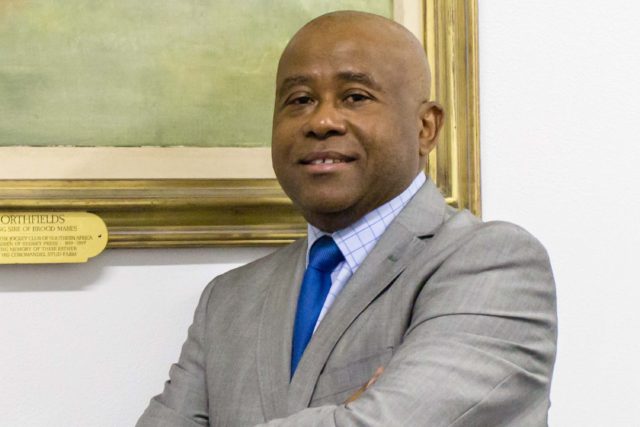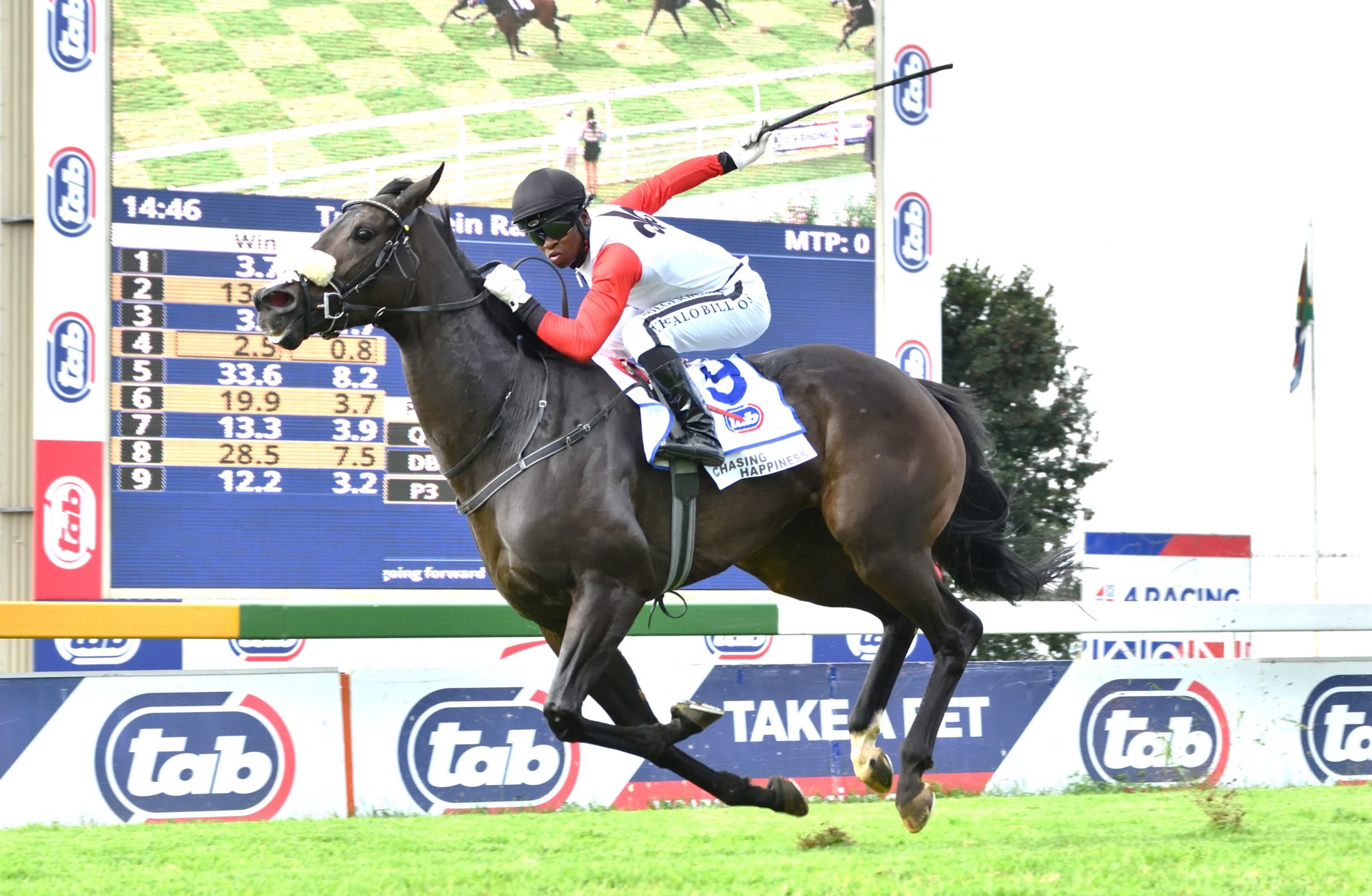Denzil Pillay resigned (left?) the NHA at the end of May 2015. In the void left by his departure, Racing Administrator Colin Hall was announced as the new CEO, although somewhat confusingly, he continued to sign off emails as Acting CEO. Although previous CEO Denzil Pillay rose through the ranks by the same route, neither the NHA Constitution nor the rules make provision for an ‘Acting’ CE – but that’s an argument for another day. It has remained a bone of contention amongst some members and I believe the matter was brought up at the recent AGM and Mr Hall’s appointment re confirmed. So when the announcement came that Lyndon Barends had been appointed as the new CEO, I was not the only one who was a bit puzzled.
Ch-ch-ch-changes
 Although the minutes of the NHA’s 20 January 2016 AGM have not yet been published, the NHA did announce that Andy O’Connor had been re-elected as Chairman for another year. The SGM that followed that same afternoon proposed changes to the Constitution, amongst others, the desire to have a Managing Director instead of a Chief Executive. While the proposed changes were blocked at that SGM, a notice of a subsequent meeting, scheduled for 20 April was posted on the NHA website. Recent perusal of their noticeboard confirms that “All members, those present at the meeting and those who submitted a proxy, voted in favour of amending the Constitution as was proposed.” So the way the composition of the National Board is decided has been changed and, it seems, the CE position now carries the title of Managing Director.
Although the minutes of the NHA’s 20 January 2016 AGM have not yet been published, the NHA did announce that Andy O’Connor had been re-elected as Chairman for another year. The SGM that followed that same afternoon proposed changes to the Constitution, amongst others, the desire to have a Managing Director instead of a Chief Executive. While the proposed changes were blocked at that SGM, a notice of a subsequent meeting, scheduled for 20 April was posted on the NHA website. Recent perusal of their noticeboard confirms that “All members, those present at the meeting and those who submitted a proxy, voted in favour of amending the Constitution as was proposed.” So the way the composition of the National Board is decided has been changed and, it seems, the CE position now carries the title of Managing Director.
While the changes to the National Board are intriguing on their own (and I encourage members to have a look as it seems there will no longer be elections and future directors will be appointed by a nominations committee), the reason for my interest is Mr Barends, who was appointed as the new CEO on 15 March 2016, but as of 20 April 2016 seems to be the Managing Director. Details matter and one wants to get these things right.
On his appointment, Mr Barends was described as a “seasoned businessman and philanthropist” and the press release stated, “Lyndon is an inspirational leader and change agent with a wealth of experience gained in various operational strategic positions held in various industries. His extensive network was garnered during his stints in the Standard Bank Public Affairs and Transformation Departments, the National Olympic Committee of South Africa (now SASCOC), and during his time spent as an entrepreneur within the IT and Sports Marketing arenas. He served as the CEO of the Primedia Sport Group of Companies where he was very instrumental in the execution of a number of World Cup 2010 projects.” We were also told that he holds a “BA in Psychology and Sociology, BA (Hons) in Social Development, a Diploma in Personnel Management and an MBA (International General Management) from Richmond Business School in London.” A bit of Googling threw up a plethora of additional fascinating snippets, including that he had received the 2014 Inyathelo Award for Philanthropy in Education.
It’s tough at the top
It would be fair to say the NHA gets short shrift among racing fans and professionals alike – sometimes fairly and sometimes less so. Of course, it is easy to be critical of big, faceless institutions. It becomes a lot harder once you know the faces and personalities behind the names.
However, I feel it a matter of principle that folks who accept important appointments should have the grace and good manners to introduce themselves, particularly when those appointments are in organisations funded by and designed to be service providers to their members.
On the one hand, it’s a public statement of their commitment to the task as well as an undertaking to take responsibility for their decisions in carrying out their role. It also serves to tell the rest of us who is in charge (ie who we can ask (blame?) when things go wrong) or, a somewhat more rare occurrence these days, who to thank when things go right.
I think everyone deserves a fair shot and while I’ve had several ‘tear my hair out’ moments with officialdom, I’d be lying if I didn’t say that I’ve also had some very helpful and productive dealings with the NHA – often above and beyond the call of duty. Reading between the lines of some of the recent NHA AGMs, there are financial as well as political constraints. While one cannot expect champagne on a beer budget, the battle must feel that much more uphill when there is an additional lack of goodwill. And there’s rarely good will towards any poor souls who have to enforce the rules. I wondered what would possess someone, particularly someone whose interests lie in the areas of education, business and philanthropy, to want to tackle horse racing. As wondering seldom gets one very far, I dropped them a line to see whether I could find out.
Communication
For many years NHA officialdom seemed to operate a closed door policy in terms of its decision makers. I had to obtain permission in triplicate before being allowed to interview Matthew Lips about his handicapping appointment – and that was BEFORE he left the SP. However, the appointment of Chairman O’Connor (who graciously granted me an interview on his appointment), seems to have ushered in a new era of communication. I realise I’m not everyone’s cup of tea, so when I sent my request to interview Mr Barends, it was more in the spirit of optimism than any real hope that it would be considered seriously, but lo and behold, not only did I receive a reply, but Mr Barends took time to meet me in person during a visit to Cape Town.
New Man
Firstly, his name is Barends, pronounced the Afrikaans way. When we met at the new NHA offices at Kenilworth, he was neatly dressed in business attire. He was somewhat shorter than I’d expected, with, if it’s not too personal an observation, exotic features which don’t lend themselves easily to pigeon-holing to a specific demographic. He satisfied my curiosity with amusement, confirming that he is of Portuguese and Dutch descent and is classified (in the days when we still did such things) as Coloured.
Lyndon Barends, or more accurately, Lyndon John Andrew Barends was born in the Crossroads area of Philippi on 20 January 1964. The youngest of the family’s six boys, he grew up in the depths of the Apartheid era in abject poverty.
His life is a fascinating tale of hard work, relentless determination in the face of adversity, belief in betterment through education and making opportunities out of seemingly nothing.
He paid his own way through high school by doing cleaning and maintenance work on the grounds after hours. He was helped and mentored by the dean of the school, Daniel Arthur Douman, a debt he continues to repay via his philanthropy. Not only did he finish up as head boy, he adds with a smile that he also married the maintenance superintendent’s daughter.
Starting his professional career as a teacher, Lyndon became involved in community development, doing fascinating work in the field of tuberculosis and HIV. He later became a spokesperson for the World Health Organisation, campaigning for TB sufferers alongside Margaret Gardiner and Archbishop Desmond Tutu.
A Stephen Covey course inspired him to set two life goals for himself – the first to attain an MBA and the second to run the Comrades marathon. The first goal was realised when he won a competition in Cosmopolitan Magazine for an MBA scholarship. The second one he’s still working on, but recently completed the Two Oceans trail run and now has his sights set on the Berlin marathon.
His CV includes varied positions within Standard Bank, NOCSA (the precursor to SASCOC), and several entrepreneurial enterprises, which led him to work in the fields of IT and sports marketing.
So why racing?
“I was head-hunted for the position and thought it would be interesting and that I could learn a lot. It’s entirely new to me, which I think is fantastic. I get to ask all the stupid questions,” he says with a grin. He has only been in office a short time and stupid questions or not, already seems to be getting to grips with racing’s famously complex set-up. “The average age is very high, and the level of experience is also very high – that’s a challenge. Without change and new ideas any organisation stagnates.” The speed and efficiency with which matters are processed is high on his list, as well as bringing about more consistency in applying rules and meting out penalties.
He’s keen to redefine the character of the NHA from a finger wagging disciplinarian, to a more all-encompassing role of facilitator, incorporating aspects of knowledge, guardianship and mentoring with the regulatory aspect simply part of a broader function. These are big ideas, but beneath the affable exterior, I get a sense of someone who is used to getting things done. He seems unperturbed by the challenge.
“I’m a strategist and change agent. There are no holy cows – I’m here to do a job. The SGM is part of that.”
He has taken on an unenviable task, but it will be interesting to see what he chooses to do with it. He is certainly an interesting individual. His varied experience has exposed him to the internal workings of government, education, sport and business and it may just make him uniquely suited to the challenge. When I shake his hand at the end of our interview and wish him luck, I mean it sincerely.









